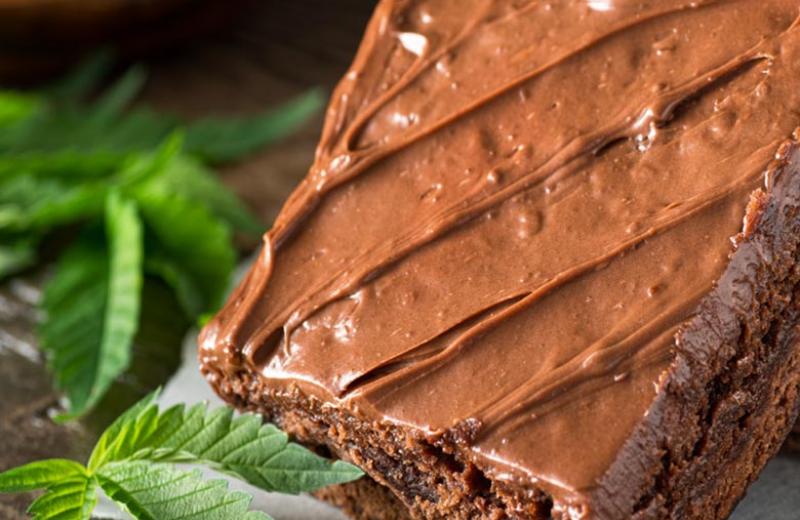Cannabis edibles, extracts, and topicals will be available for purchase mid-December. “Cannabis” is the scientific name for the plant, but you might also know it as bud, dope, ganja, marijuana, pot, or weed. The cannabis plant contains many chemicals, including THC (tetrahydrocannabinol) and CBD (cannabidiol). THC is largely responsible for the “high,” whereas CBD is commonly used for therapeutic use.
Cannabis can be consumed in different ways
Cannabis is usually consumed in two common ways:
- Inhalation (smoking or vaping)
- Ingestion (eating or drinking)
What are cannabis edibles, extracts and topicals?
Eating or drinking cannabis may seem bizarre to some people … do you just take a bite out of the leaf? Spoiler: you don’t.
- Edibles – There are many cannabis edibles (also referred to as cannabis-infused food or drink) like tea, gummies, cookies, and brownies.
- Extracts – Cannabis extracts can be used by inhaling or by ingesting THC via capsules.
- Topicals – Cannabis-infused topicals are products that are intended to be used on external body surfaces (i.e., skin, hair, and nails).
Eating weed
The concept of “eating weed” may confuse people who have never used edibles before. People don’t actually eat the plant; instead, the cannabis is infused into the food or drink. For some people, this is the preferred way to avoid the smell of cannabis smoke, and it may be less harmful to people who have breathing issues and want to consume cannabis without inhaling it. It’s also more discreet to eat or drink edible products than to smoke them. Edible products can be consumed without risk of second- and third-hand smoke.
How long does it take for an edible to work?
Edibles absorb slower than smoking or vaping. It can take anywhere from 30 minutes to two hours to begin feeling the effects of edible products (everyone has a different response time). When the effect is delayed, some people might be tempted to have a second helping, but this can lead to a “green out” or cannabis overdose.
When it comes to consuming edibles, it’s best to make a plan in advance and only consume one dose per 24 hours.
7 recommendations to prevent harm from edibles:
- Avoid cannabis until later in life
- Avoid cannabis until later in life. Young people have higher cannabis-related health risks.
- Start low, go slow
- Choose low-strength products (those with low THC content or higher CBD to THC ratio) and limit your frequency and use.
- Be mindful of when the effect can peak and how long it can last.
- Practice harm reduction or lower your risk
- Avoid synthetic cannabis products.
- Do not combine cannabis with other high risk behaviours, such as consuming alcohol, tobacco or other drugs.
- Wait at least two hours before consuming any additional product
- The full effects of edible cannabis can peak within four hours, and the full length of the effects can last up to 12 hours after use.
- Some residual effects can last up to 24 hours, so you could be affected into the next day.
- Store your supply securely in a safe location, out of reach of children and
- If you suspect a child has consumed a cannabis product, call Poison Control: 1-800-567-8911 and seek medical attention.
- Don’t drive or operate machinery after using cannabis
- Don’t use if you have special risks
- Avoid cannabis if you have a personal or family history of psychosis, substance use, are pregnant, or are breastfeeding.
- Using cannabis during pregnancy may affect your baby. There is no known safe amount of cannabis for pregnancy and breastfeeding.
Let’s talk about it!
Family and friends may express an interest in edible cannabis; it’s natural for individuals to be curious about products that gain media attention. Talking openly and honestly with family members about issues like substance use helps foster positive relationships.
Here are some tips for talking about cannabis:
- Start the conversation – be calm, positive, listen actively and engage.
- Set a positive example – don’t use cannabis products around children and youth.
- Know the facts and where to seek support (check out “Further supports” below).
- Don’t buy or give cannabis products to minors.
- Keep the conversation ongoing.
You’re encouraged to keep learning about the effects of cannabis as new information becomes available. Refer to Health Canada’s Cannabis in Canada: Get the facts for updated resources related to cannabis use.














Comments